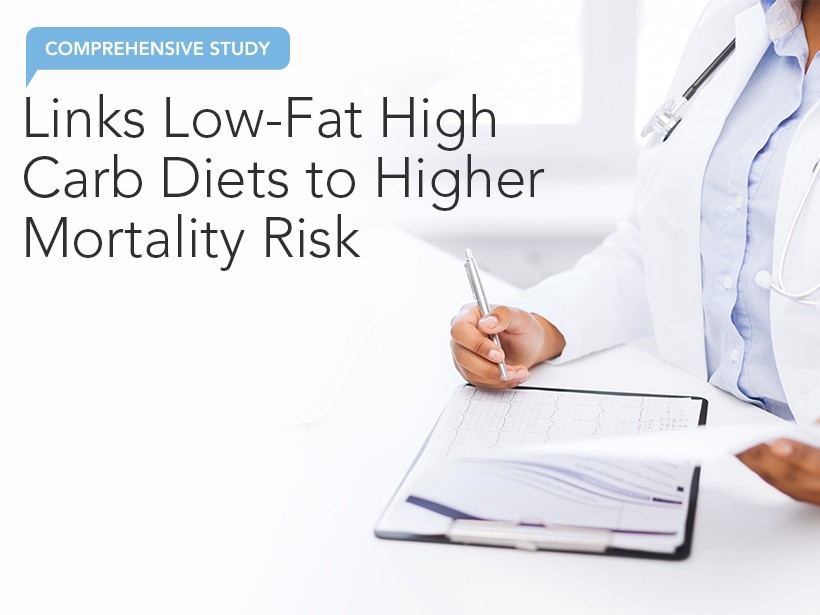A recent study published in The Lancet goes a long way towards solidifying experts’ claims, arguing that it is, in fact, sugar, not fat, that poses the biggest dietary risk to public health. Despite decades of policies and diets that target fat as the biggest culprit—largely thanks to compromised research funded by the sugar industry—scientists, as well as the general public, are finally turning their sights on sugar.
The Dangers of a Low-Fat Diet
The study, presented during the congress of the European Society of Cardiology in Barcelona, demonstrates that eating a small amount of lipids and a large amount of sugar makes for an unsettlingly dangerous diet. After 7 years of research with 135,000 participants on 5 continents, the authors concluded that high sugar intake drives up mortality rates. In fact, the findings read: “High carbohydrate intake was associated with higher risk of total mortality, whereas total fat and individual types of fat were related to lower total mortality.” 1
Dr. Mahshid Dehghan, a researcher at the University of Hamilton and author of the study, along with nearly twenty colleagues studied the diets of people aged 30 to 75 in 18 different countries. The nutritional habits of each participant were cataloged using surveys taken over the course of 7 years. The data, after being divided into 5 sections according to the amount of fat ingested, reveals a striking result: those who ate the least amount of fat were the ones with the highest mortality rates. In other words, the participants who ate more fat saw their risk of premature death diminished by 23 percent, as compared to the group with a lipid-poor diet. Carb intakes of more than 60 percent of total energy per day were associated with an increase in the risk of non-cardiovascular disease and stroke. What’s worse, those who compensated for low-fat intakes with a high consumption of carbs and sugar had an even higher risk of mortality.
Tides Turning in Research on Fat and Sugar
According to these results, the study’s authors praised a high rate of fat intake as part of a healthy diet: “Our findings indicate that limiting total fat consumption is unlikely to improve health in populations, and a total fat intake of about 35 percent of energy with concomitant lowering of carbohydrate intake might lower risk of total mortality.”
While this is hardly the first study to come out in the last two decades contradicting years of health claims that frame fat as an insidious threat to public health, it is one of the most comprehensive. What’s more, it cuts to the heart of the fat versus sugar debate that has been a major preoccupation of scientists, regulators, and the general public (particularly in the U.S.) since at least the 1960s. In an interview with Reuter’s Health, Dr. Dehghan said simply, “We are hoping that dietary guidelines are reconsidered in light of the new findings.” 2
NUTRITIONAL DISCLAIMER
The content on this website should not be taken as medical advice and you should ALWAYS consult with your doctor before starting any diet or exercise program. We provide nutritional data for our recipes as a courtesy to our readers. We use Total Keto Diet app software to calculate the nutrition and we remove fiber and sugar alcohols, like erythritol, from the total carbohydrate count to get to the net carb count, as they do not affect your blood glucose levels. You should independently calculate nutritional information on your own and not rely on our data. The website or content herein is not intended to cure, prevent, diagnose or treat any disease. This website shall not be liable for adverse reactions or any other outcome resulting from the use of recipes or recommendations on the Website or actions you take as a result. Any action you take is strictly at your own risk.
- For Keto, the Everyday Research Says it All - March 6, 2019
- Huge Harvard Study Backs Up the Wide-Ranging Benefits of a Low-Carb Diet - February 25, 2019
- Experts Convene for Keto Conference - July 30, 2018




